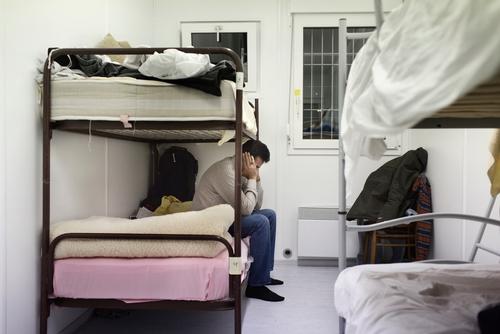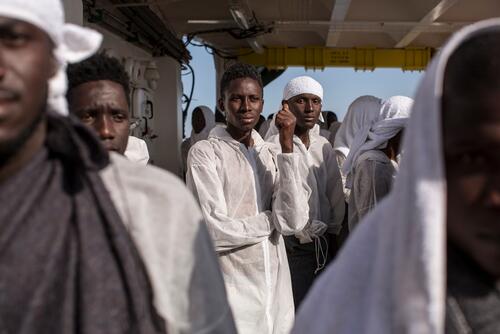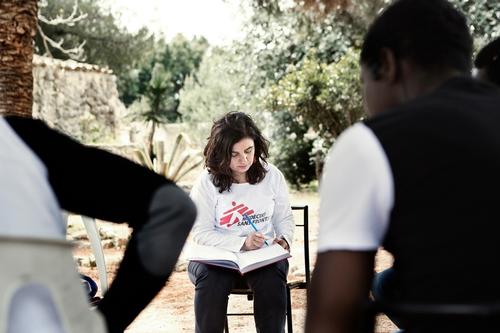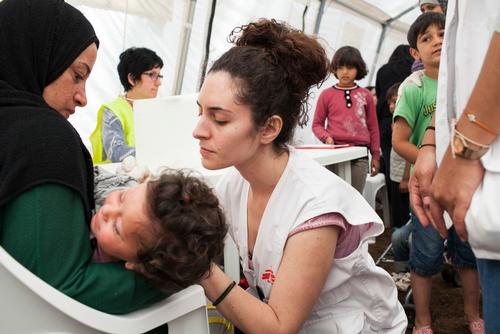- Interview with Jamal, cultural mediator & logistician
- Jamal, a refugee from Afghanistan, is working as cultural mediator for Médecins Sans Frontières (MSF) in the reception centre of Gorizia, Italy, at the border with Slovenia.
During the last years I have had to face many difficulties: I have lived in refugee camps in France, the United Kingdom and Greece. I was repatriated twice from Greece, and have had to live in a detention centre , so I understand the fears and problems of people like me, who find themselves in this situation of uncertain future.
The first time I arrived in Italy, in 2005, it was just to pass through before going on to the UK. Now, after facing death several times and experiencing hardships, I have been granted international protection. I am happy to work with MSF as a cultural mediator and to provide a warm welcome and adequate housing for asylum seekers arriving in search of shelter, food, medical care and protection.
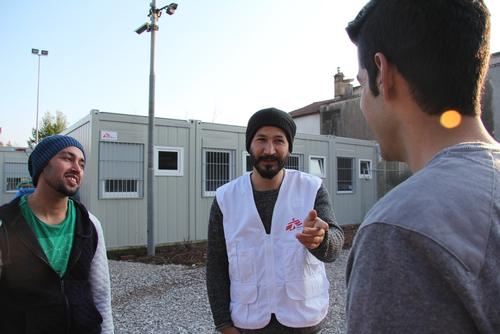
When did you start working for MSF?
I started in Sicily, providing psychological first aid to new arrivals with a group composed of a psychologist and cultural mediators. I met the survivors of the sea crossing, people extremely traumatized by distressing moments during their journey. In the beginning, it was not easy to absorb people’s pain, sometimes I could not hold back my tears.
I felt very strong emotions, but I was happy to be able to help people who needed support and information, just like me when I first arrived in Italy in 2005 and I was tired, fragile and confused as they are. Today, my work is a real opportunity to help those in need, just like me.
Can you tell us about an episode that particularly touched you during your work as cultural mediator?
In Palermo this summer I met and supported a Nigerian man who lost his wife during the trip; he was alive, but completely immobile. He could not eat or even walk alone. I have been very close to him, I knew that he was feeling an immense pain, but I told him to be strong and I advised him to share his pain with the others. He could not even recognise the body of his partner. His heart was broken.
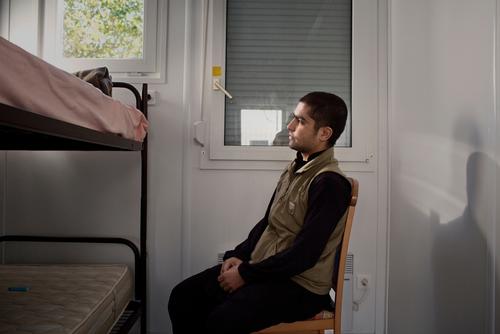
During your work as a cultural mediator with MSF, what do refugees ask you? What are their concerns?
Their biggest concern is about their future, they are confused, some of them have medical needs, others want to go to another destination to reunite with their family, they are asking for advice. You can see in their eyes that they are worried; they are confused because they do not know how the system works. They are afraid. Also during my trip, I was afraid to die. I was afraid of drowning when I was crossing the Aegean Sea, or when I was hidden under a truck between France and England for three hours. I struggled to survive with the snow on my face, holding with my hands the tube connecting the wheels. But finally I managed to arrive in UK.
What do you think Europe should do?
There is a European side that is able to host, but unfortunately there is also a EU that turns a blind eye to the abuses at its borders. Equal human treatment and dignity protection should be the priority and Europe must provide this. I have also experienced violence and abuses. In Turkey, the police humiliated me while I was very sick. In Istanbul, for 20 days I was locked in a smuggler’s house. When I tried to run away, they beat me and tortured me, putting whiskey into my nose. In Greece, I ran away because I didn’t want to be identified, I was beaten and forced to leave my fingerprints even if I didn’t want to. Then I was held in an identification and expulsion centre. They told me that I had to leave the country.
Why do you think your presence here is important?
People have in front of them a positive example of integration – this reassures them and makes them feel more comfortable. I’ve also passed through different countries and it was very difficult because I've never found someone that was willing to make the effort to help me understand the context. No one explained what was happening to me; I always had to find the way, alone, through my friends who were here.
It's crucial to have someone who speaks your language, understands your situation, who reassures you on the legal process. Being here is a new challenge for me. I can encourage and support these people who come here. Like them, despite the obstacles on my way, I’ve always tried to be strong and to reach my goals.




